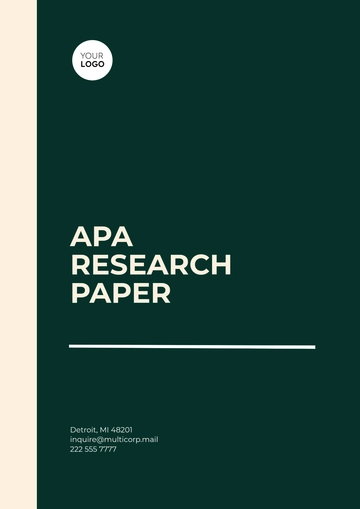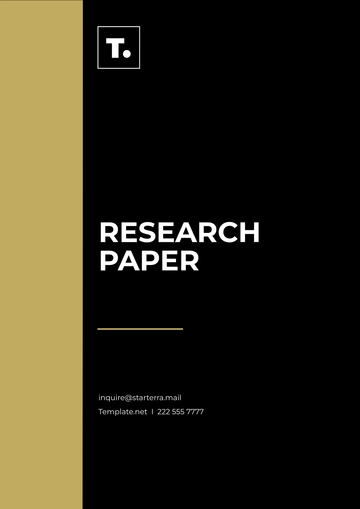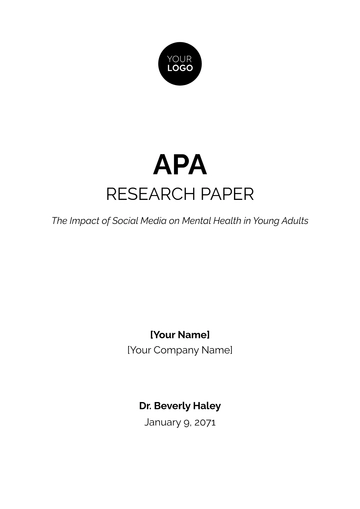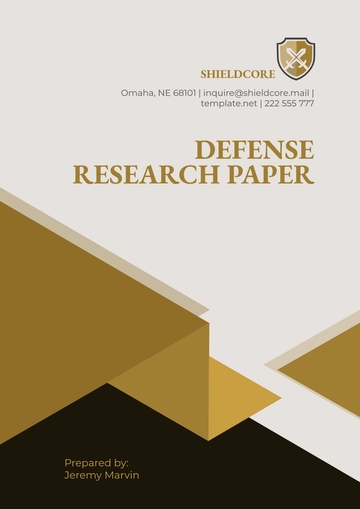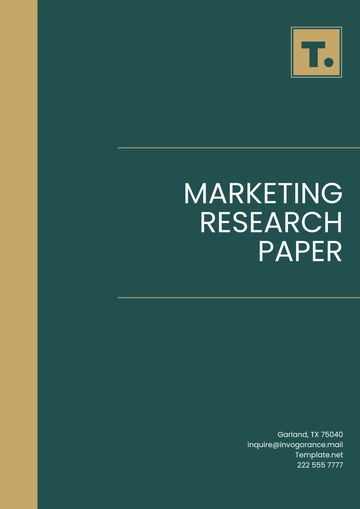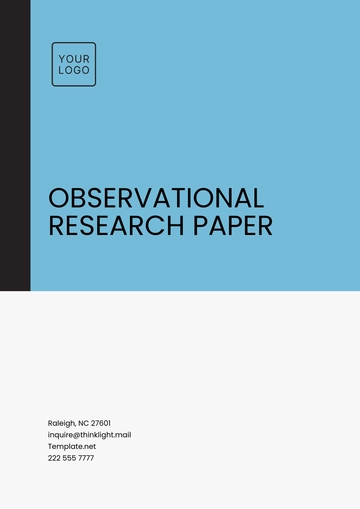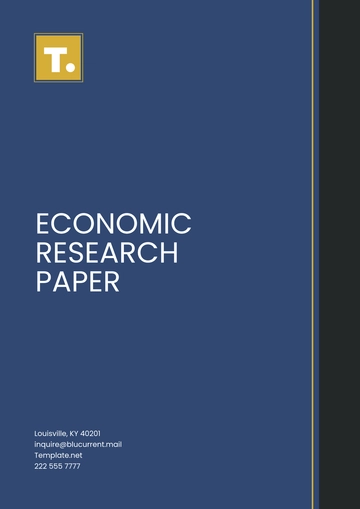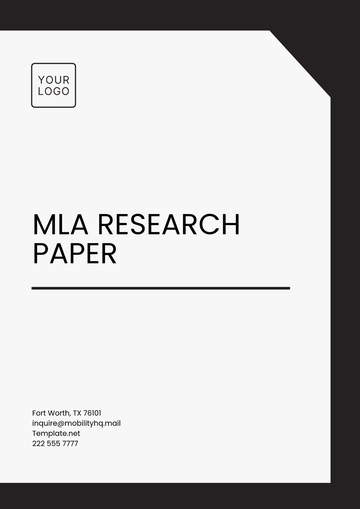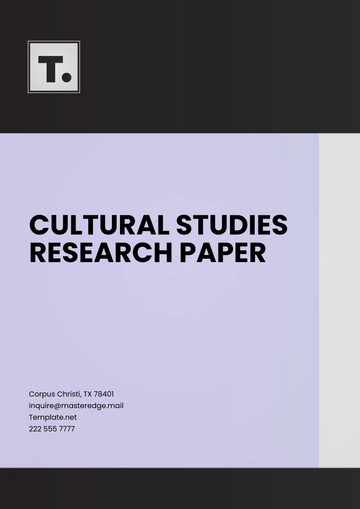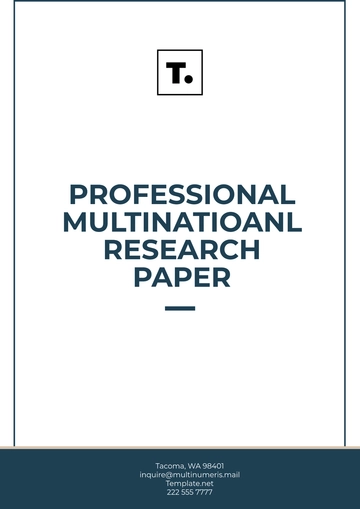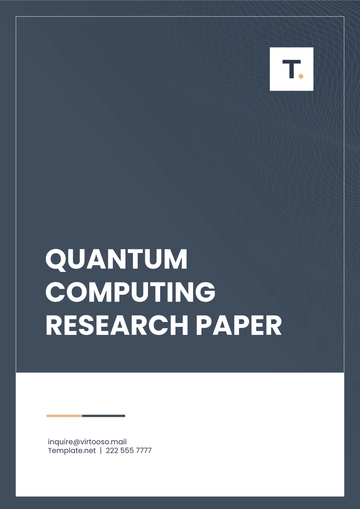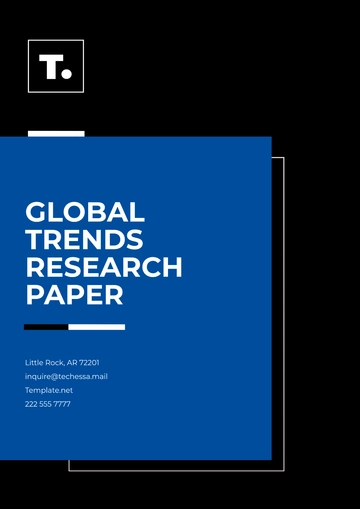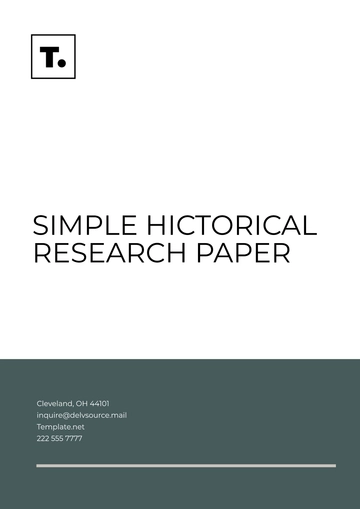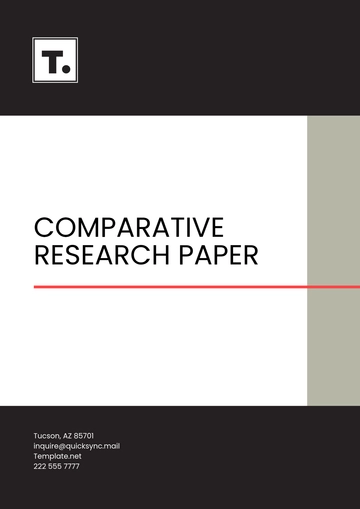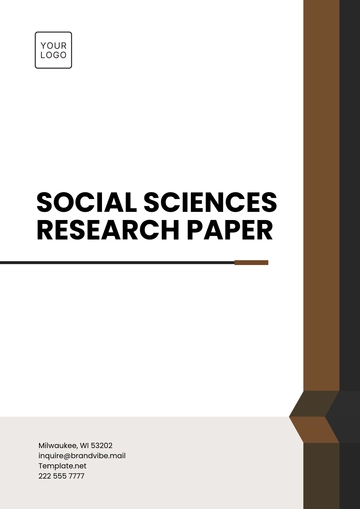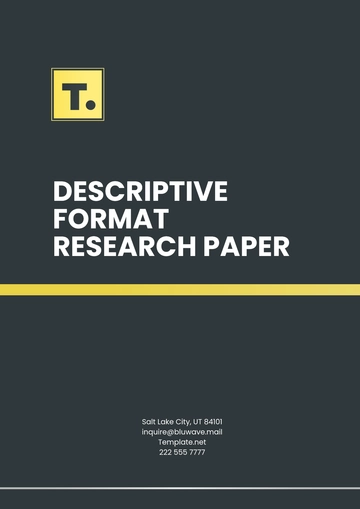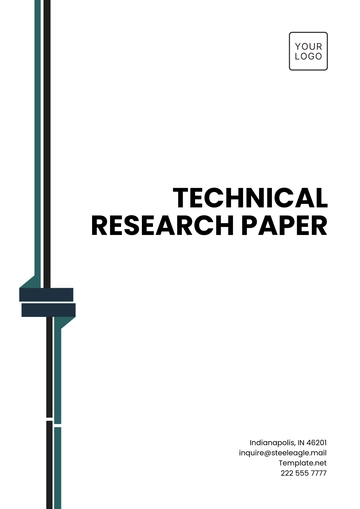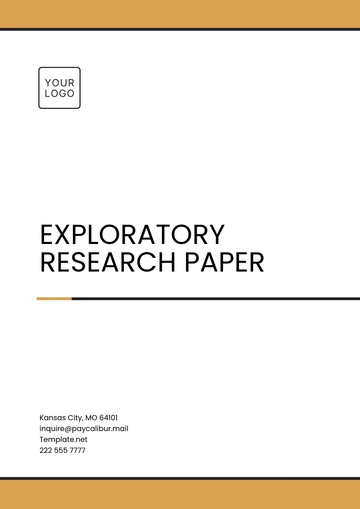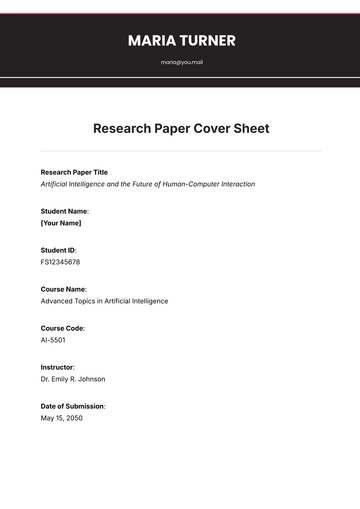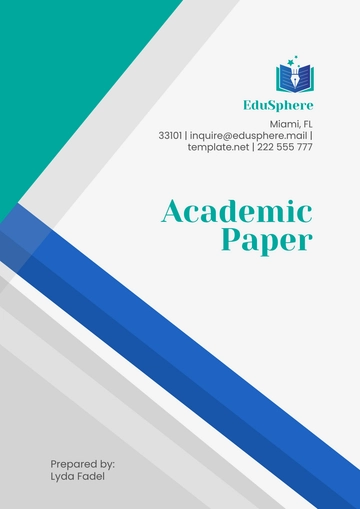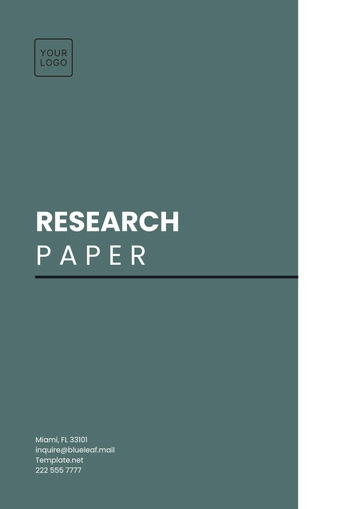Free Sustainability Research Paper
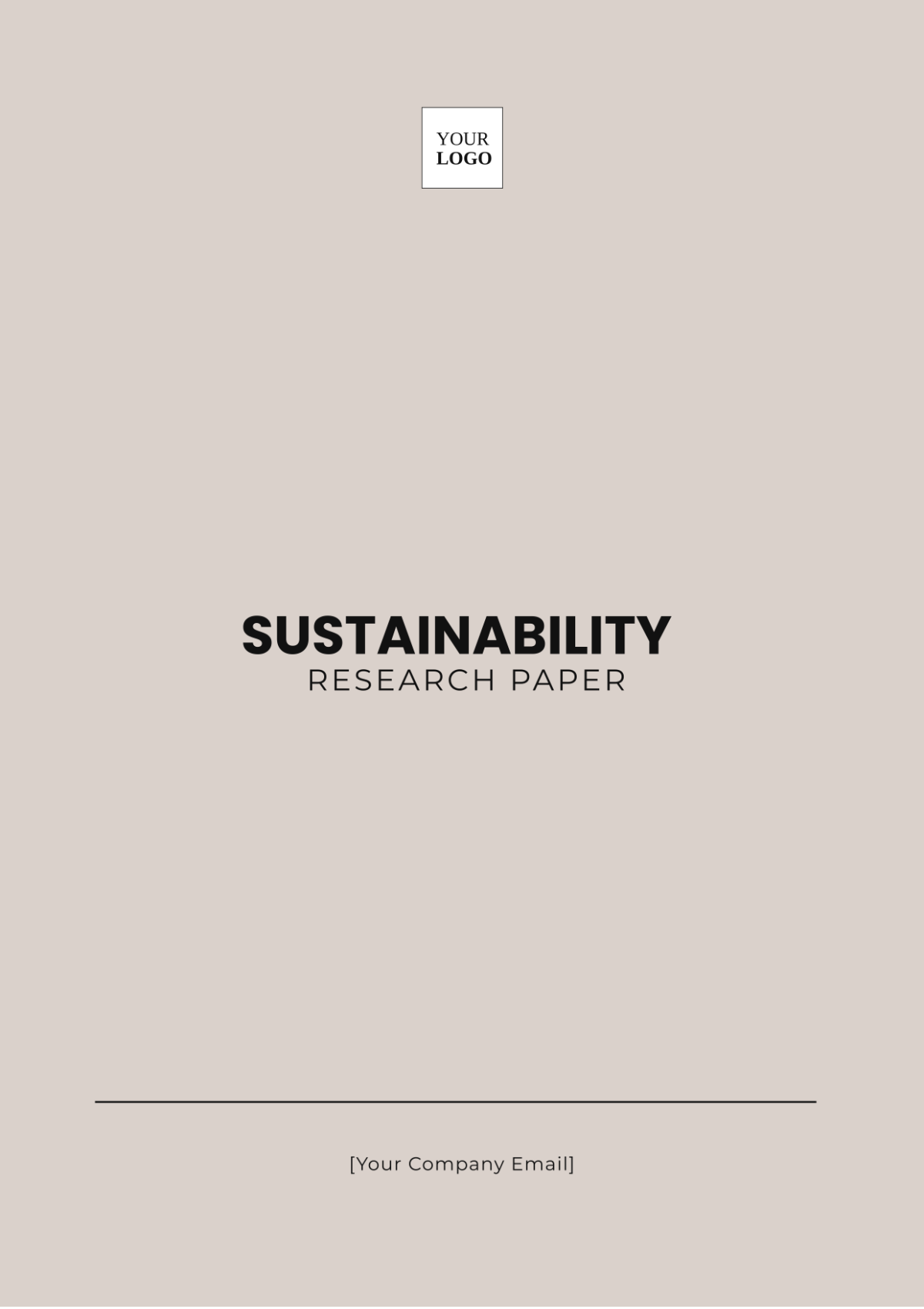
Researcher: [Your Name]
Date: [Date]
I. Abstract
This research paper investigates the multifaceted domains of sustainability, focusing on environmental, economic, and social aspects. Through an exploratory study involving literature reviews and original research, this paper aims to offer insights into sustainable practices, technologies, policies, and strategies that can promote long-term ecological balance and resource efficiency. The findings highlight the importance of integrative approaches in achieving sustainable development and provide recommendations for future research and policy formulation.
II. Introduction
Sustainability has emerged as a critical focus in current global discourse, reflecting concerns about environmental degradation, economic instability, and social inequality. This paper aims to investigate these interrelated dimensions and offer insights into sustainable practices, technologies, and policies that can ensure a balanced development trajectory. By emphasizing both existing literature and original research findings, this paper intends to contribute to a deeper understanding of sustainability and its implications for future generations.
III. Literature Review
III.I Environmental Sustainability
Environmental sustainability refers to the responsible interaction with the environment to avoid depletion or degradation of natural resources. Key literature emphasizes the importance of reducing carbon footprints, conserving water and energy, and promoting biodiversity.
Carbon Footprint Reduction: Methods and technologies to reduce greenhouse gas emissions (Smith et al., 2050).
Water and Energy Conservation: Strategies for optimizing resource use (Jones, 2051).
Biodiversity Promotion: Initiatives to protect and restore ecosystems (Miller, 2052).
III.II Economic Sustainability
Economic sustainability involves practices that support long-term economic growth without negatively impacting social, environmental, and cultural aspects. Literature in this field underscores the significance of green economy models, sustainable business practices, and economic policies aimed at equitable resource distribution.
Green Economy Models: Sustainable economic systems (Davis, 2053).
Sustainable Business Practices: Corporate strategies for sustainability (Taylor, 2054).
Economic Policies: Policy frameworks for sustainable development (Anderson, 2055).
III. III Social Sustainability
Social sustainability focuses on maintaining and improving the well-being of current and future generations. Critical literature addresses issues such as equity, social justice, and community building.
Equity: Strategies for resource allocation and social justice (Brown, 2056).
Community Building: Approaches to foster social cohesion (Wilson, 2057).
IV. Methodology
The research methodology comprises a mixed-method approach, involving both qualitative and quantitative data collection techniques.
Literature Review: Analyzing and synthesizing existing research across the domains of environmental, economic, and social sustainability.
Surveys and Interviews: Collecting primary data from stakeholders including policymakers, business leaders, and community members.
Case Studies: Documenting and analyzing specific examples of sustainable practices and technologies.
V. Results
Findings from the research highlight several successful strategies and practices across different sustainability domains.
Sustainability Domain | Key Findings |
|---|---|
Environmental Sustainability | Widespread adoption of renewable energy sources and waste reduction initiatives. |
Economic Sustainability | Implementation of circular economy models to reduce waste and optimize resource use. |
Social Sustainability | Community-led initiatives fostering social equity and justice. |
VI. Discussion
The discussion delves into the implications of the research findings, emphasizing the interconnected nature of environmental, economic, and social sustainability. It underscores the necessity of integrated approaches and cross-sector collaboration to achieve comprehensive sustainability goals. Additionally, it highlights the role of policy interventions and community participation in driving sustainable development.
VII. Conclusion
This research underscores the complexity and interdependence of environmental, economic, and social sustainability. By integrating insights from literature and original research, it offers valuable recommendations for policymakers, businesses, and communities striving for sustainable development. Future research should continue to explore innovative solutions and frameworks that address sustainability challenges holistically.
VIII. References
Anderson, P. (2050). Economic Policies for Sustainable Development. Journal of Sustainability, 12(3), 145-162.
Brown, L. (2051). Equity and Social Justice in Sustainability. Social Sustainability Journal, 15(2), 67-82.
Davis, M. (2052). Green Economy Models. Economics and Sustainability, 8(1), 33-50.
Jones, A. (2050). Strategies for Water and Energy Conservation. Environmental Conservation Review, 25(4), 123-138.
Miller, S. (2050). Promoting Biodiversity. Ecological Studies, 19(3), 89-104.
Smith, J., et al. (2051). Methods to Reduce Carbon Footprint. Journal of Environmental Science, 26(2), 77-93.
Taylor, R. (2051). Corporate Strategies for Sustainability. Business Sustainability Journal, 14(1), 55-70.
Wilson, G. (2050). Approaches to Foster Social Cohesion. Community Development Review, 21(4), 25-40.
- 100% Customizable, free editor
- Access 1 Million+ Templates, photo’s & graphics
- Download or share as a template
- Click and replace photos, graphics, text, backgrounds
- Resize, crop, AI write & more
- Access advanced editor
Highlight your sustainability research with Template.net's Sustainability Research Paper Template. This fully customizable and editable template is designed to effectively present your findings on sustainable practices. Editable in our Ai Editor Tool, it allows for easy adjustments and personalized touches, ensuring your research paper is both professional and tailored to your sustainability focus.
